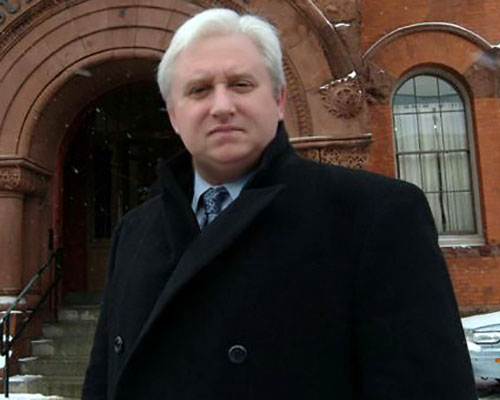Essex County District Attorney Jonathan W. Blodgett.
Part 2 of 2.
A recent decision to “divert” a Haverhill public works employee from the court system over a drug possession charge to a drug treatment program has helped raise awareness of a little-known effort targeting addiction.
Yesterday, Essex County District Attorney Jonathan W. Blodgett told WHAV listeners his evolving program allows minor drug offenders to agree to treatment either before their first court date or just after arraignment. Successful completion of the program means no time behind bars and no criminal record. There are no age limits and the program is available at all district courts.
The diversion program is not detox. Rather, Blodgett told WHAV, it begins with an extensive intake process—often three hours or more—with vendor Project COPE-Bridgewell, of Lynn. Clinicians determine and develop a scope of treatment.
“About 80 percent of the people that we’re trying to help through the disease of addiction have a co-occurring disorder, usually some mental health issue.”
Unlike private insurance, which may limit the length of treatment, the diversion program gives drug users the time needed to recover. “We will take someone and give them the opportunity to get long-term care. I have to emphasize that strongly, long-term care,” Blodgett said.
Some remain with the program from three months to one year.
“The average treatment span is six months, and that’s really what the experts in this field will tell you what is needed.”
Participants are monitored and drug tested. An initial lack of success, however, does not necessarily push drug users back into court. “And, as anyone involved in this knows, there’s often relapses. We understand that. We acknowledge it. And, if the person we’re trying to help still wants to try to maintain their sobriety, we’ll allow them to stay in the program.”
Blodgett explained, second chances occur only when clinicians think the program can be “changed, tweaked or rebooted.”
“We will not give up on people as long as they’re willing to do the hard work.” To avoid future problems, Blodgett recognized the need for additional support. He is in the process of securing grants from the state Executive Office of Public Safety to hire “recovery coaches.” With $40,000 received so far, coaches help people find housing, further their education through college or vocational training and ensure continued mental health care.
During 2016, Blodgett’s drug diversion program accepted 117 people. Of these, 13 successfully completed it, 38 remain and the rest—66—went on to be prosecuted. He said the numbers are considered to be a success in drug treatment circles.
“The success we’ve had, the experts say, is remarkable. The fact that we still have so many people in our program just speaks to the fact that it takes time.” In fact, the Addiction Policy Forum, meeting last year in Philadelphia, gave the Essex Adult Drug Diversion program its Focus on Innovation seal.
“The criminal justice system here is a big part of the solution and the answer,” Blodgett said.

Good program